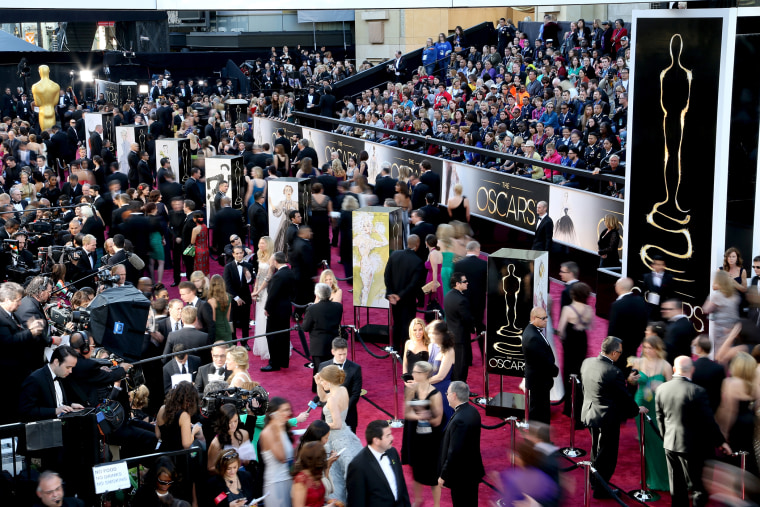If you want to demonstrate Hollywood’s diversity problem, a montage is worth 1,000 blog posts.
That’s the argument behind Every Single Word, a YouTube series that edits Hollywood’s whitest blockbusters down to those few seconds when a person of color actually speaks. The videos then roll abridged credits, listing only those parts played by minority actors.
RELATED: ACLU calls for investigation into lack of female directors in Hollywood
Under this treatment, Spike Jonze’s "Her" becomes a 47-second film, starring Pramod Kumar as “Pizza Vendor” and Claudia Choi as “Uncomfortable Waitress.” "American Hustle" runs under a minute, "Black Swan" less than 30 seconds, and Disney’s "Into the Woods" turns into an experimental film consisting entirely of a title card that reads “Starring,” beneath which there is only darkness.
The videos are the brainchild of Dylan Marron, a 27-year-old bi-racial actor, best known for his voice work on the popular podcast "Welcome to Nightvale."
Since he created the series three weeks ago, the videos have collectively generated more than 1 million views.
“It’s kind of surreal how much it’s taken off,” Marron told msnbc.
While the project is less than a month-old, Marron said that the inspiration for the series had been “forming inside him” for a long time.
Marron’s first exposure to the world of professional acting was also one of the first times he became conscious of race and its implications. Growing up attending a diverse New York City public school, Marron says that he didn’t have a strong sense of racial identity -- until one day, in third grade, when he attended an audition for "Home Alone 3."
Back then, 20th Century Fox had sent an open casting call to all New York City schools, telling their students that any one of them could be the new “Kevin McCallister,” the role that made Macaulay Culkin into a national icon. But although the studio hadn’t listed any racial specifications for the part, Marron said he quickly discovered that he wasn’t the kind of kid they were looking for.
“The way it worked is, the kids would come onto the stage 15 at a time and either get asked to come to the callback or not,” he said. “And I was just noticing that all of these kids who looked a certain way, white kids, were being invited to the next level, and all of those who didn’t fit that bill were not.”
With his YouTube videos, Marron hopes to make Hollywood’s lack of diversity more visible to those who’ve never been to casting call.
“The series is one of the most direct ways I’ve found to speak to this real pervasive problem in the industry, that’s insidious because it’s so easy not to notice it.”
The overwhelming whiteness of the entertainment industry attracted greater notice in January, when the The Academy of Motion Picture Arts and Sciences failed to nominate a single non-white actor for the first time in 19 years. A month later, UCLA released a study of diversity in Hollywood that found people of color were grossly underrepresented on both sides of the camera.
RELATED: Lack of diversity takes center stage at this year's Oscars
To Marron, such homogeneity doesn’t merely disadvantage minority artists -- it also contributes to the alienation of minority youth.
“I would watch movies when I was younger, and I would rarely see my reflection on screen, and the dangerous thing is that you internalize it,” he said. “You just feel like there’s something wrong with you when you aren’t represented.”
While Marron would love to see more films by people of color that depict the idiosyncratic challenges facing minority individuals and communities, he’s most concerned by the whitewashing of broad, universal narratives.
When selecting films to cut for his Every Single Word project, Marron looks for movies with great stories that are centered on universal human themes like love or mortality. Marron understands and respects the need for films that explore white-dominated spaces with realistic casting, but feels that fantasy films like "Into the Woods" miss a crucial opportunity when they make their mythical lands looks like 1950's suburbs.
“If you want me to believe there’s a dragon guarding your castle, you can ask me to accept creative uses of race,” Marron said. “I think Hollywood has such a hand in shaping how we think about race that it’s up to them to reshape it. If Hollywood wants to re-cast what is normal, I truly believe they have the power to do that.”
